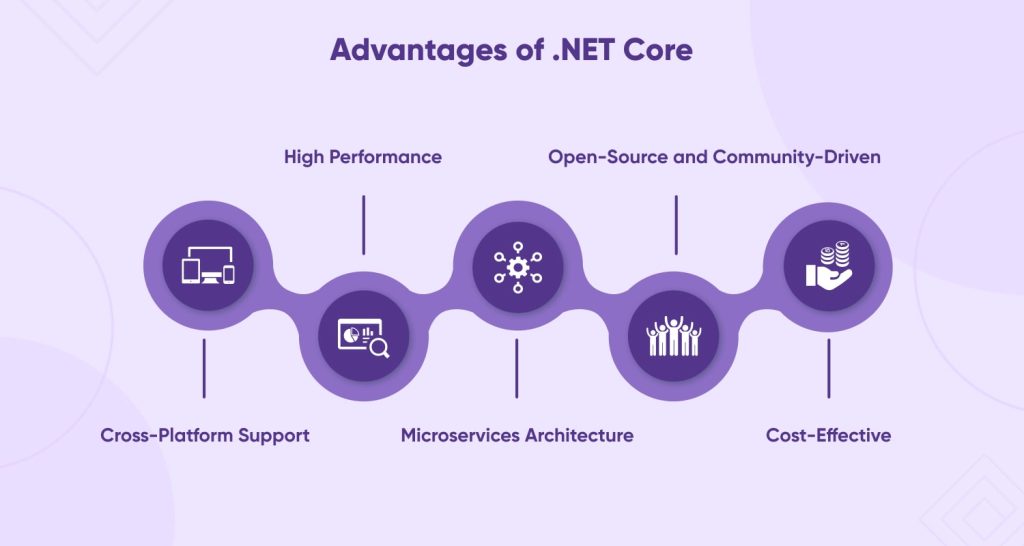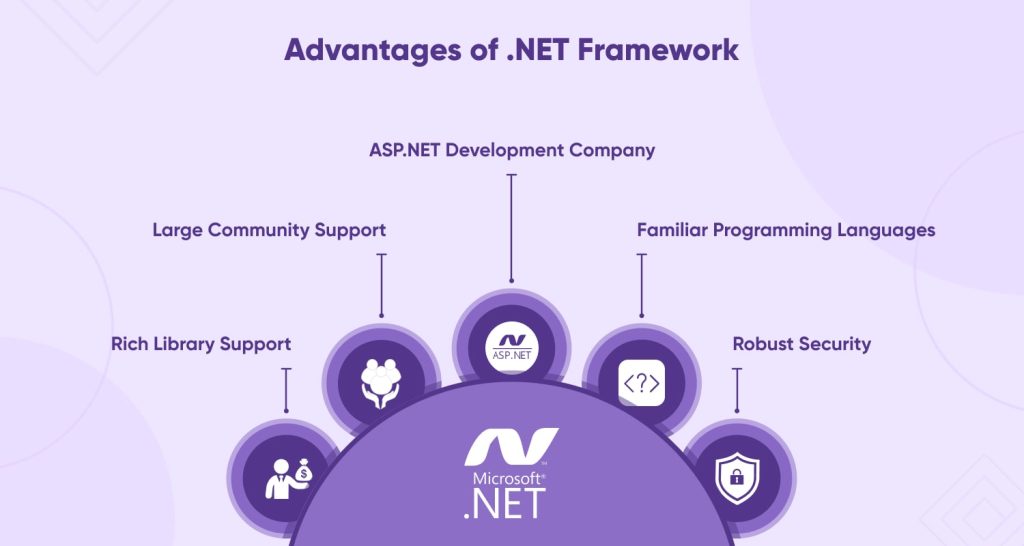As a software developer, choosing the right framework is crucial for building applications that meet your specific requirements. .NET Framework and .NET Core are two of the most popular frameworks for building Windows-based applications, but they have different strengths and limitations. .NET Framework has been around since 2002 and has a mature ecosystem with extensive library support, while .NET Core is a newer open-source and cross-platform framework that offers better performance and scalability. Both frameworks have their own advantages and disadvantages, and choosing between them requires careful consideration.
In this in-depth comparison of .NET Core vs .NET Framework, we will explore the key differences between the two frameworks, their advantages and limitations, and the factors you should consider before choosing one for your next project. We will also discuss the compatibility, performance, development, and deployment aspects of both frameworks, along with the best practices for building applications using .NET Core and .NET Framework. Whether you’re a seasoned developer or just starting with .NET development, this article will provide valuable insights to help you make an informed decision about which framework to choose.
Difference Between .Net Core and .Net Framework
.NET Core and .NET Framework are two of the most popular frameworks for developing Windows-based applications. While both frameworks have similar objectives, there are several key differences between them.
One of the main differences between .NET Core and .NET Framework is that .NET Core is open-source and cross-platform, while .NET Framework is only available for Windows. This means that .NET Core can run on different operating systems, including Windows, Linux, and macOS, while .NET Framework is limited to Windows-based systems.
Another significant difference between the two frameworks is performance. .NET Core offers better performance compared to .NET Framework, thanks to its optimized runtime and modular design. This makes .NET Core a better choice for applications that require high performance and scalability.
.NET Core also has a smaller footprint compared to .NET Framework, making it more suitable for building lightweight and modular applications. However, this smaller footprint means that some of the features available in .NET Framework may not be available in .Net Core Best Practices.
In terms of development practices, both frameworks have their own best practices that developers need to follow. .NET Core developers need to focus on building modular and scalable applications that can run on multiple platforms, while .NET Framework developers need to focus on building applications that are compatible with the Windows operating system.
Ultimately, the choice between .NET Core and .NET Framework depends on the specific requirements of the project, infrastructure needs, and development goals. Companies looking to build applications on these frameworks may also choose to hire dedicated developers who specialize in .NET Core or .NET Framework development to ensure the best results.
Overview of .NET Core
.NET Core is a free, open-source, cross-platform, and high-performance framework for building modern web and desktop applications. It was initially released by Microsoft in 2016 as a successor to the .NET Framework. .NET Core has gained popularity over the years due to its flexibility, scalability, and ability to run on multiple platforms.
Advantages of .NET Core:

- Cross-platform support: One of the biggest advantages of .NET Core is its cross-platform support. It can run on Windows, Linux, and macOS, which makes it easier to develop and deploy applications across different platforms.
- High performance: .NET Core is optimized for performance and can handle high traffic loads. It has a smaller footprint than the .NET Framework and uses a just-in-time (JIT) compiler to improve performance.
- Open-source and community-driven: .NET Core is an open-source framework with a vibrant community of developers contributing to its growth. This means that there are many third-party libraries and packages available that can be used to enhance the functionality of the application.
- Microservices architecture: .NET Core is well suited for building microservices-based architectures. This means that developers can break down their applications into smaller, independent services, which can be developed and deployed separately.
- Cost-effective: .NET Core is a cost-effective solution for building modern applications. It is free to use and can be deployed on a variety of platforms.
Limitations of .NET Core:
- Limited third-party support: Although .NET Core has a growing community, it still lacks the same level of third-party support as the .NET Framework. This means that some third-party libraries and packages may not be available for use in .NET Core applications.
- Learning curve: .NET Core has a steeper learning curve than some other frameworks. Developers may need to invest more time in learning the framework and its associated tools before they can start building applications.
- Compatibility issues: Since .NET Core is a newer technology, there may be compatibility issues when migrating from the .NET Framework to .NET Core.
- Hire .NET Core developers: As .NET Core is a newer technology, there may be a shortage of experienced .NET Core developers, making it harder to hire qualified candidates.
- Asp.net vs .net core: .NET Core has some limitations in comparison to the ASP.NET Framework. It does not have built-in web forms and is not as feature-rich as the ASP.NET Framework.
Overview of .NET Framework
Microsoft’s.NET Framework was released in 2002 and serves as a framework for creating applications.. It is used to build desktop, web, and mobile applications for Windows-based systems. .NET Framework has been widely used by developers over the years due to its ease of use, large community support, and extensive library of pre-built components.
Advantages of .NET Framework:

- Rich library support: .NET Framework has an extensive library of pre-built components and APIs, making it easier for developers to build complex applications.
- Familiar programming languages: .NET Framework supports several popular programming languages like C#, VB.NET, and F#, making it easier for developers to get started with the framework.
- Robust security: .NET Framework provides built-in security features to protect applications from common threats like cross-site scripting, SQL injection, and other vulnerabilities.
- Large community support: .NET Framework has a large and active community of developers providing support and resources to build applications.
- ASP.NET Development Company: .NET Framework is an ideal choice for ASP.NET Development Company, as it provides rich features and tools for building web applications.
Limitations of .NET Framework:
- Windows-only support: .NET Framework is designed for Windows-based systems, making it unsuitable for cross-platform development.
- Limited performance: .NET Framework’s performance is slower compared to .NET Core due to its reliance on a just-in-time (JIT) compiler.
- Limited support for microservices architecture: .NET Framework is not as well-suited for building microservices-based architectures compared to .NET Core.
- Compatibility issues: As new versions of the .NET Framework are released, there may be compatibility issues when migrating from one version to another.
- .Net Framework vs .Net Core: .NET Framework does not offer the same cross-platform support and performance as .NET Core.
Comparison between .NET Core and .NET Framework
When it comes to choosing between .NET Core and .NET Framework, developers need to consider several factors such as compatibility, performance, development and deployment, support and community. Here’s a detailed comparison of .Net core vs .Net framework performance:
- Compatibility:
.NET Framework is designed for Windows-based systems only, while .NET Core supports cross-platform development, including Windows, Linux, and macOS. This makes .NET Core a better choice for developing modern web applications that can run on multiple platforms.
- Performance:
.NET Core outperforms .NET Framework in terms of speed and performance. This is due to its use of a just-in-time (JIT) compiler and the fact that it is designed to work optimally with microservices architecture. Therefore, if performance is a priority, .NET Core is the best choice.
- Development and Deployment:
Developing applications with .NET Core is easier due to its open-source nature, cross-platform support, and compatibility with modern development tools. .NET Core provides faster and more straightforward deployment with Docker, which simplifies the containerization process. In contrast, .NET Framework is still a closed-source, Windows-only framework that is less flexible when it comes to development and deployment.
- Support and Community:
Both .NET Core and .NET Framework have a large and active community of developers, but .NET Core is relatively new compared to .NET Framework. Therefore, .NET Framework has a more extensive library of pre-built components and APIs, and a more mature and stable support system. However, .NET Core has gained significant momentum in recent years, and its community support is rapidly growing.
.NET Core vs .NET Framework – Which one to choose?
Choosing between .NET Core and .NET Framework largely depends on the project requirements, development goals, and infrastructure needs. Here are some factors to consider before making a decision:
Factors to consider:
- Platform: If you need to develop cross-platform applications that run on multiple platforms, .NET Core is the better choice.
- Performance: If performance is a priority, .NET Core is faster and more efficient than .NET Framework.
- Development and deployment: .NET Core is more flexible and open-source compared to .NET Framework, making it easier to develop and deploy applications.
- Compatibility: If you need to work with legacy applications or libraries that only support .NET Framework, then it is better to stick with .NET Framework.
Scenarios where .NET Core is a better choice:
- Building modern web applications that need to run on multiple platforms.
- Developing microservices-based architectures.
- Needing faster performance.
- Developing applications using the latest development tools and practices.
Scenarios where .NET Framework is a better choice:
- Developing Windows-based applications.
- Using legacy applications or libraries that only support .NET Framework.
- Working with applications that require a stable and mature support system.
- Developing applications that do not require cross-platform support.

Conclusion
In conclusion, both .NET Core and .NET Framework have their own strengths and limitations. .NET Framework is a mature and stable framework with extensive library support, while .NET Core is open-source, cross-platform, and offers better performance. Choosing between the two depends on the specific requirements of the project, infrastructure needs, and development goals. Developers need to weigh the factors carefully before making a choice. Ultimately, the decision should be based on which framework best meets the needs of the project and provides the most efficient and effective development and deployment process.
Frequently Asked Questions
Is .NET Core Replacing the .NET Framework?
Yes, .NET Core is intended to replace the .NET Framework, as Microsoft has shifted its focus towards cross-platform development and open-source technologies.
Which is Better .NET Core or .NET framework?
It depends on the specific project requirements, infrastructure needs, and development goals, as both .NET Core and .NET Framework have their own strengths and limitations.
Why is .NET Core Faster than the .NET framework?
.NET Core is faster than .NET Framework due to its improved runtime, which allows for better memory allocation and garbage collection, as well as optimizations in its just-in-time (JIT) compiler.
How is .NET Core different from ASP.NET?
.NET Core is a framework for building different types of applications, while ASP.NET is a web development framework built on top of .NET Core (or .NET Framework) specifically for building web applications.







